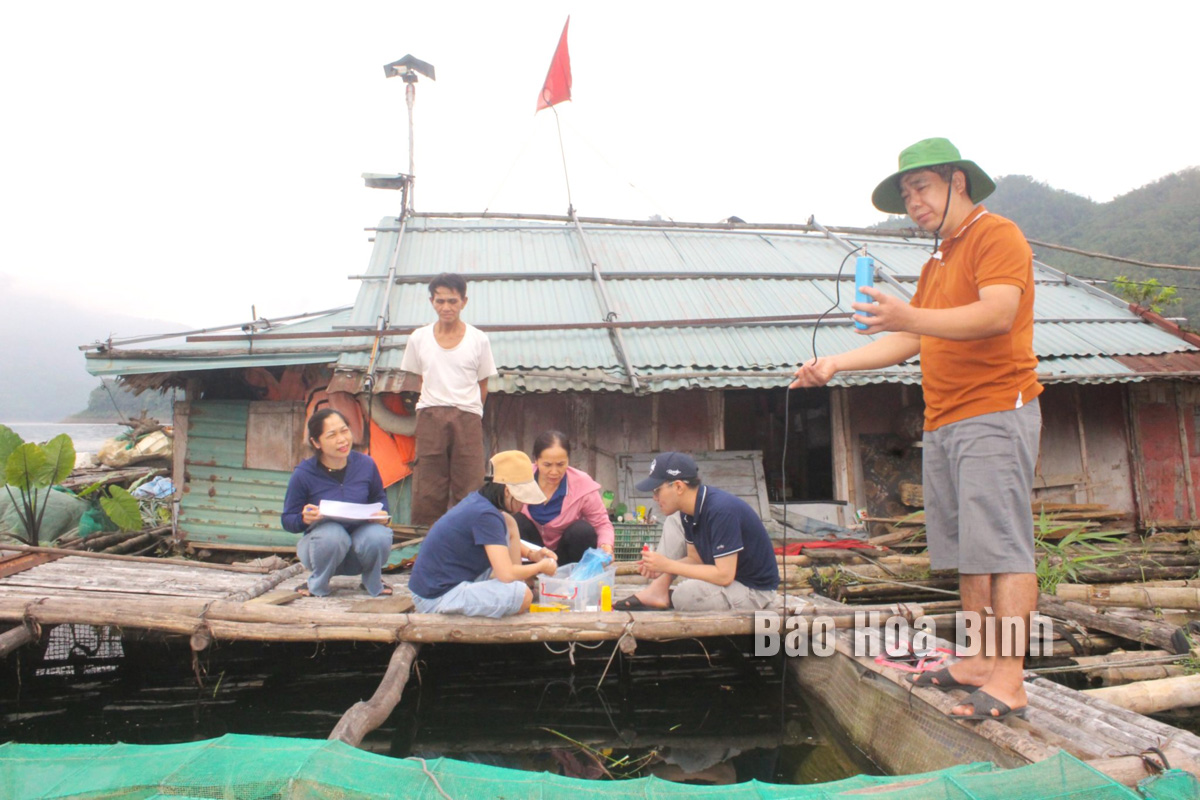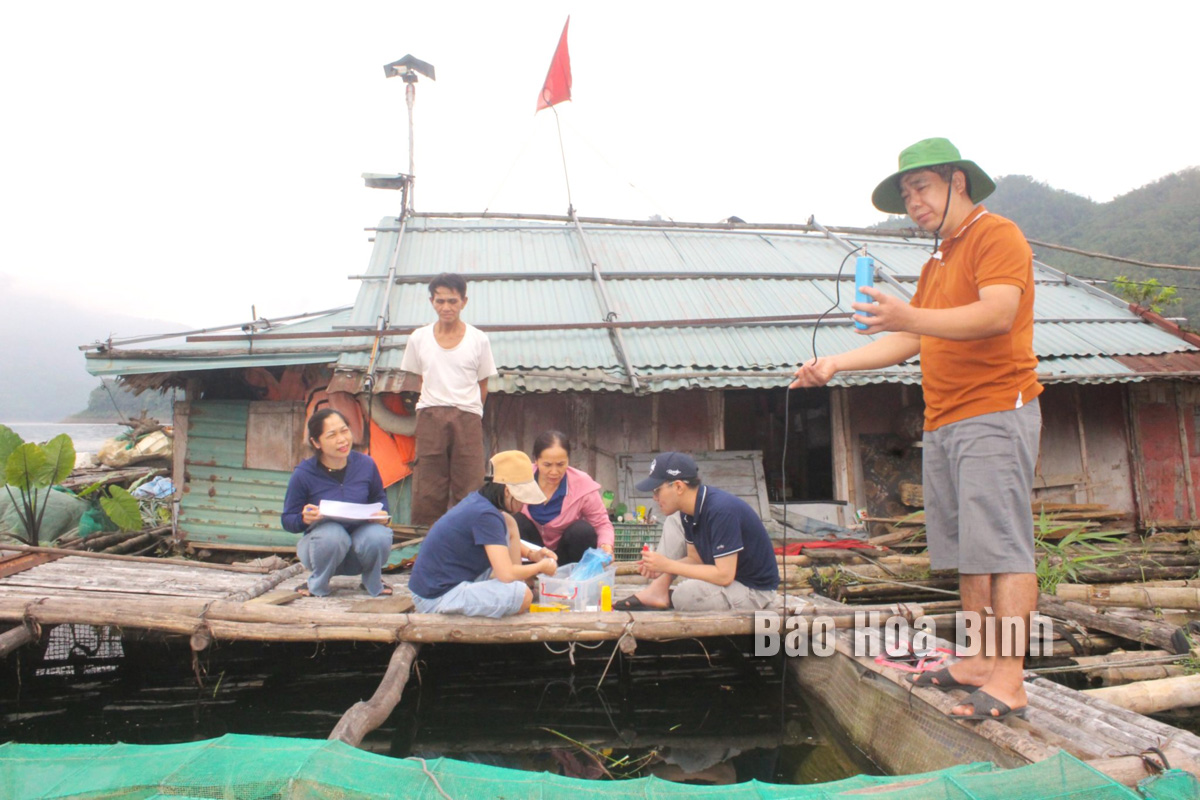
Over the past years, the provincial sub-department of fisheries has coordinated with relevant agencies in implementing solutions to protect, regenerate and restore aquatic resources. Such efforts have contributed to maintaining ecological balance, while creating livelihoods, and bringing economic efficiency to local residents.
The provincial sub-department of fisheries has paid attention to monitoring water levels, the environment and weather conditions as part of solutions to protect and develop aquatic resources.
With a water surface area of about 8,900 hectares, the Hoa Binh reservoir area boasts favourable conditions to promote tourism and aquaculture. Over the past years, fishing and aquaculture have generated stable income for local residents. However, the aquatic resources are exhausted due to overfishing, which can be seen in Thung Nai, Vay Nua and Tien Phong communes.
Dang Thi Duy, deputy head of the sub-department, pointed to poor awareness of locals as the root cause behind the problem. Given this, the province has issued various resolutions and decisions regarding fish cage farming in the area and aquaculture development.
Its aquaculture area now stands at 2,700 hectares and the number of fish cages has risen to nearly 5,000 from only 1,700 in 2014. Its aquatic output in the first half of this year is estimated at over 6,000 tonnes. The provincial sub-department of fisheries has paid attention to monitoring water levels, the environment and weather conditions as part of solutions to protect and develop aquatic resources.
Last month, the agency sent an inspection delegation to the area to supervise fishing activities by organisations and individuals, and proposed the provincial Department of Agriculture and Rural Development repair notice signs there.
According to data from the Hoa Binh Provincial Party Committee, the industrial production index for the first six months of 2025 is estimated to have increased by 20% compared to the same period last year. This marks the highest year-on-year growth rate for this period since 2020.
In the first six months of 2025, Hoa Binh province’s export turnover was estimated at 1.145 billion USD, marking an 18.11% increase compared to the same period in 2024. Import turnover was estimated at $ 804 million, a 17.15% increase, which helped the province maintain a positive trade balance.
The lives of the ethnic minority farmers in Tan Lac district have gradually improved thanks to the new directions in agricultural production. This is a testament to the collective strength fostered through the professional associations and groups implemented by various levels of the district’s Farmers’ Union.
With the motto the "product quality comes first,” after nearly one year of establishment and operation, Muong village’s Clean Food Agricultural and Commercial Cooperative, located in Cau Hamlet, Hung Son Commune (Kim Boi district), has launched reputable, high-quality agricultural products to the market that are well-received by consumers. The products such as Muong village’s pork sausage, salt-cured chicken, and salt-cured pork hocks have gradually carved out a place in the market and they are on the path to obtaining the OCOP certification.
In the past, the phrase "bumper harvest, rock-bottom prices" was a familiar refrain for Vietnamese farmers engaged in fragmented, small-scale agriculture. But today, a new spirit is emerging across rural areas of Hoa Binh province - one of collaboration, organisation, and collective economic models that provide a stable foundation for production.
Maintaining growing area codes and packing facility codes in accordance with regulations is a mandatory requirement for agricultural products to be eligible for export. Recently, the Department of Agriculture and Environment of Hoa Binh province has intensified technical supervision of designated farming areas and packing facilities to safeguard the "green passport" that enables its products to access international markets.



